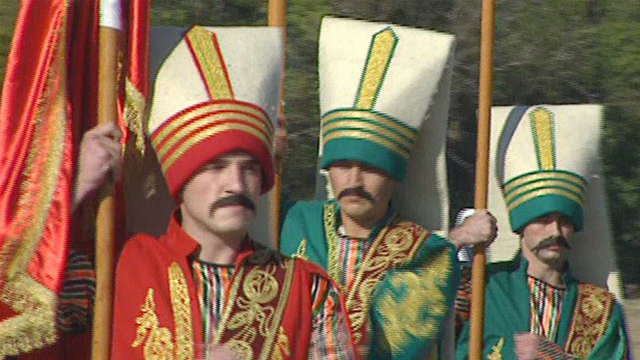Beyond the Faultline
Turkey's paradoxical oppression of Muslims
 The Turkish government has a heavy hand in religious practice within its borders. Muslims have severely restricted freedoms, a black mark against its international image.
The Turkish government has a heavy hand in religious practice within its borders. Muslims have severely restricted freedoms, a black mark against its international image.
In Turkey, those who want to practice their Muslim faith are regarded by the State as the enemy within. Women who wear the headscarf are banned from universities and jobs in the public service like teaching or nursing. "I want to obey the rules of my religion, but I want to live a modern life too. It's my right," says Fatima who, after a decade as a high school teacher, was sacked simply for wearing a headscarf in the classroom. Religion does have a place in Turkey, but it is strictly confined to the mosques. Even the Imam's weekly sermon is written by the government-appointed spiritual leader. The main reason for Turkey's sensitivity to religious extremism is geographical. "Turkey is surrounded by Iran, Iraq, Syria - fundamentalist countries - and they want to make us just like them," explains former President Kenan Evren. The war on terrorism has lent their arguments renewed strength: "If you become soft, people like Osama bin Laden will emerge from our country." But many Turks argue that it's time this secular model separating religion and the state was abandoned; Islam is not a threat to national security, and the government's current policy risks undermining democracy itself. With Turkey desperate to join the EU, it must improve its human rights record and reduce the influence of the military on the state. Yet, now of all times, it is reluctant to compromise state security. The question is: how best to manage the fine balance?
Produced by ABC Australia
FULL SYNOPSIS

